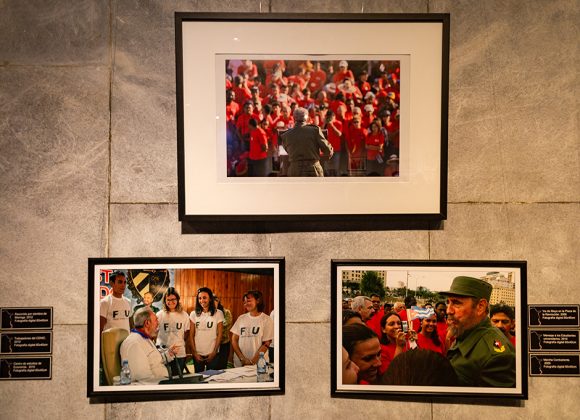On the Occasion of Omara Portuondo’s Birthday: Exploring the Origins and Significance of a Legendary Name

In celebration of the recent birthday of Omara Portuondo—the “Bride of Filin” and Diva of the Buena Vista Social Club—we delve into the origins and attributes of the name carried by this extraordinary Cuban artist.
The name Omara likely has multiple origins, but it is most closely linked to Arabic roots, and in some instances, to African or Hebrew influences. In Arabic, it may derive from the root «ʿ-m-r,» associated with life, prosperity, or longevity. Omara is typically interpreted as «one who lives fully,» «prosperous,» or «flourishing.» It is also linked to the name Omar, meaning «life» or «longevity,» with Omara serving as its feminine variant.

The name is found across parts of sub-Saharan Africa and the Caribbean, sometimes shaped by Arabic or Islamic traditions. While its nuances may shift by region, Omara evokes ideas of vitality, strength, and serene beauty. Phonetically and semantically, the name is attractive: it features a gentle yet distinctive sound, beginning with the open vowel “O” and ending with “a,” lending it a melodic rhythm that is easy to pronounce in many languages. Familiar in Hispanic, Arab, and Afro-descendant circles, Omara remains sufficiently rare to impart a sense of uniqueness without being inaccessible.
Connected with meanings like «life,» «prosperity,» and «longevity,» Omara conveys resilience, warmth, and continuity, and is naturally associated with wellness, art, style, female leadership, renewal, and sustainability. The name suits elegant, minimalist, or ethnic typography and presents no orthographic or pronunciation challenges in Spanish.
In the Spanish-speaking Caribbean, many Arabic names—including Omara, Nadia, and Samira—arrived with migrations from the Levant (Syria, Lebanon, and Palestine) in the late 19th and early 20th centuries. These communities became deeply woven into local culture, especially in Cuba, the Dominican Republic, and Puerto Rico. The name Omara gained broader popularity across the Spanish-speaking world, in part thanks to the iconic Cuban singer, granting it unique artistic and cultural resonance.
For Omara Portuondo, her name is more than an artistic moniker; it has become a cultural brand symbolizing elegance, Cuban tradition, and musical sophistication. Today, her name is synonymous with authenticity and legacy.
Known as the Diva of the Buena Vista Social Club, Omara Portuondo was born on October 29, 1930, in Havana. In 1996, she helped found the Buena Vista Social Club, a project that brought renewed global attention to Cuban traditional music, earning her international acclaim, including a Grammy in 1998. In 2019, Omara made history as the first Cuban woman to be honored with a Latin Grammy Lifetime Achievement Award—a milestone in Caribbean culture.
Her name represents not only an artist but also the resilience of Afro-Cuban culture, increased visibility for women in male-dominated genres such as son and filin, and the bridge between tradition and innovation in world music. More than an etymological curiosity, Omara is a gateway to stories of migration, gender, cultural resistance, and artistic legacy.
Translated by Luis E. Amador Dominguez



